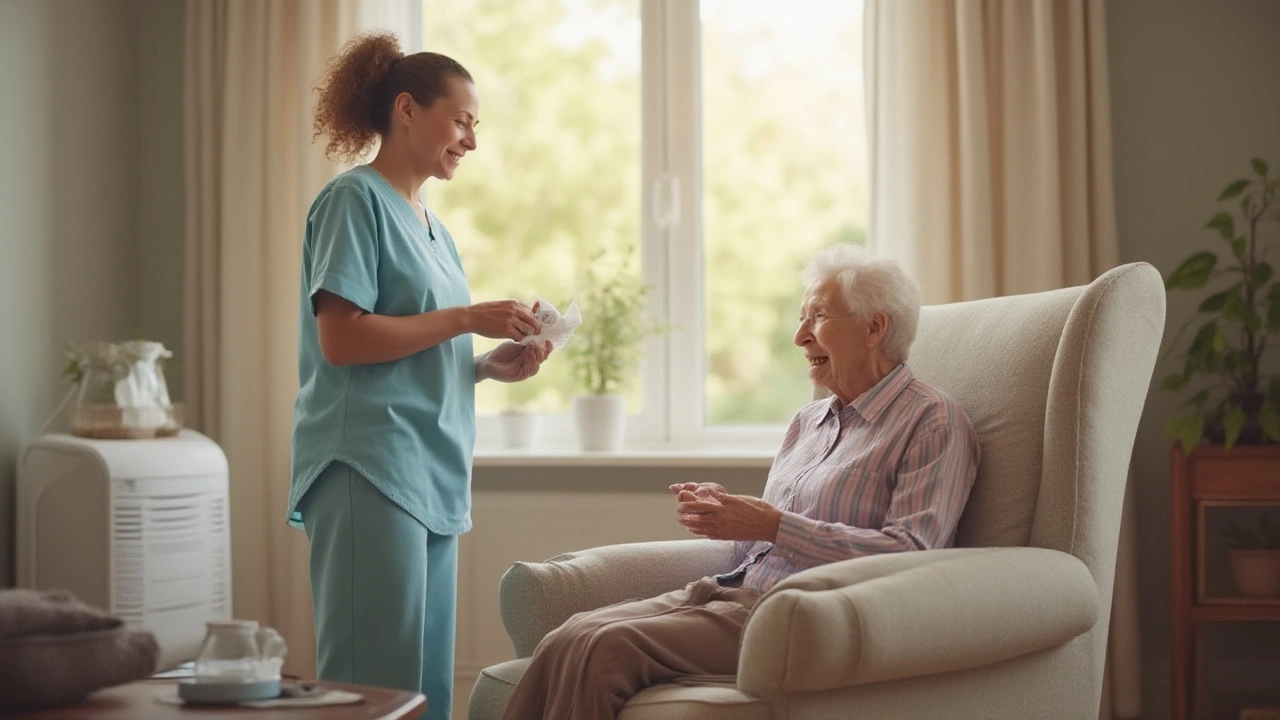Senior Allergy Symptoms: Spotting and Managing Them
Allergies aren’t just a teenager’s problem. As we get older, the way our bodies react to pollen, dust, or pet dander can change. If you or a loved one keep sneezing, itching, or feeling short‑of‑breath, it might be an allergy showing up in a senior’s body.
Typical Allergy Signs in Older Adults
Most people think of watery eyes and a runny nose, but seniors often notice a few extra clues:
- Persistent cough or throat irritation – a dry cough that won’t go away can be an allergic response.
- Worsening asthma or shortness of breath – even mild allergens can tighten airways in older lungs.
- Skin itching or hives – the skin gets thinner with age, so rashes can appear more easily.
- Congestion that feels “stuck” – seniors may describe it as a heavy feeling, not a runny nose.
- Fatigue or trouble sleeping – allergies can keep you up, and lack of sleep adds extra fatigue.
Because many older adults also take medications for blood pressure or heart disease, it’s easy to mistake these signs for side effects. That’s why tracking when symptoms flare up (like during pollen season) helps confirm an allergy.
Practical Tips to Reduce Allergy Discomfort
Once you’ve identified the pattern, there are simple steps that can make a big difference:
- Keep windows closed during high pollen days and use air conditioners with clean filters.
- Wash bedding weekly in hot water to get rid of dust mites.
- Vacuum with a HEPA filter at least twice a week, especially in carpets.
- Take a short‑acting antihistamine after checking with a doctor—many are safe for seniors.
- Stay hydrated – fluids thin mucus and ease coughing.
If symptoms persist, a doctor can run a simple skin prick test or blood test to pinpoint the exact triggers. Knowing the culprit lets you avoid it or use targeted treatments like nasal sprays or prescription antihistamines.
Remember, allergies in seniors can sometimes mimic a cold, flu, or even heart issues. If you notice sudden chest tightness, severe shortness of breath, or swelling of the face and throat, treat it as an emergency and call 911.
Keeping an eye on patterns, using basic home fixes, and talking to a healthcare provider can keep allergy symptoms from ruining daily life. You deserve clear breathing and comfortable skin at any age.
- By Leona Ashfield
- Health
- 12 Comments
Managing Allergies in Older Adults: Practical Tips for Seniors & Caregivers
Learn actionable tips for managing allergies in older adults. Discover how caregivers and seniors can improve comfort, spot symptoms, and reduce triggers.
